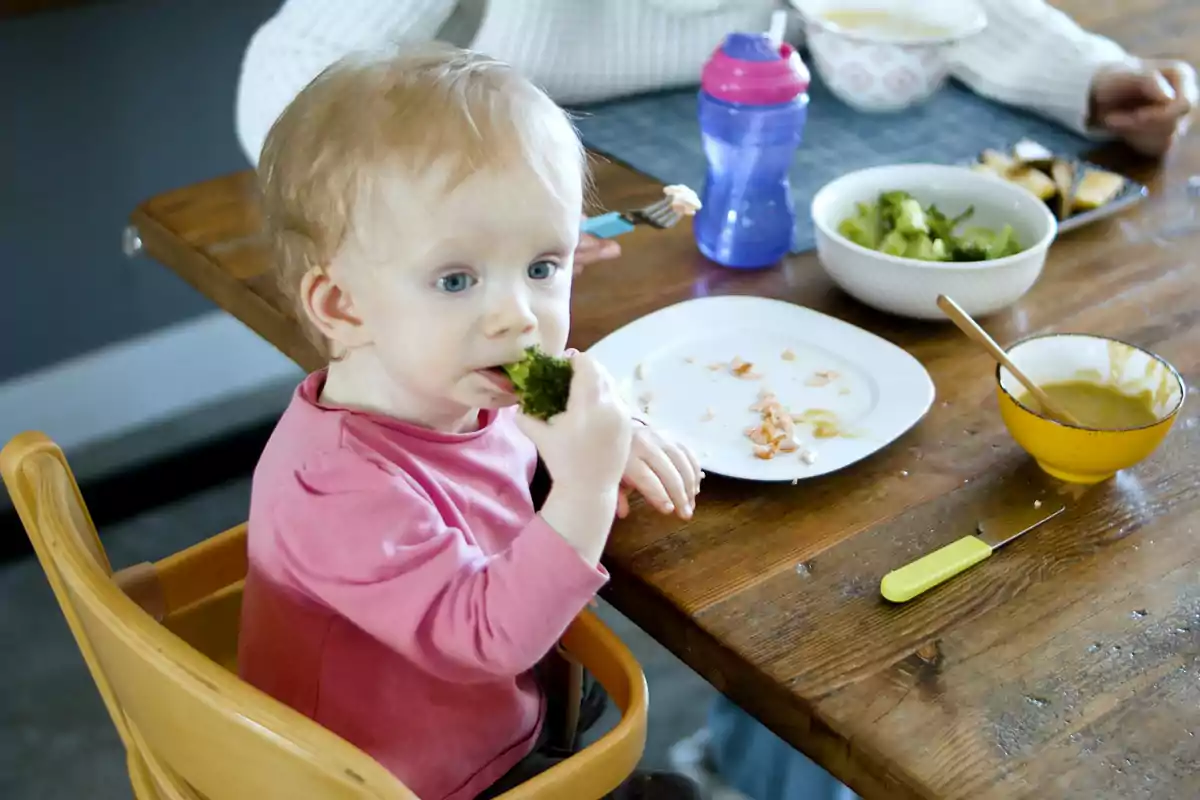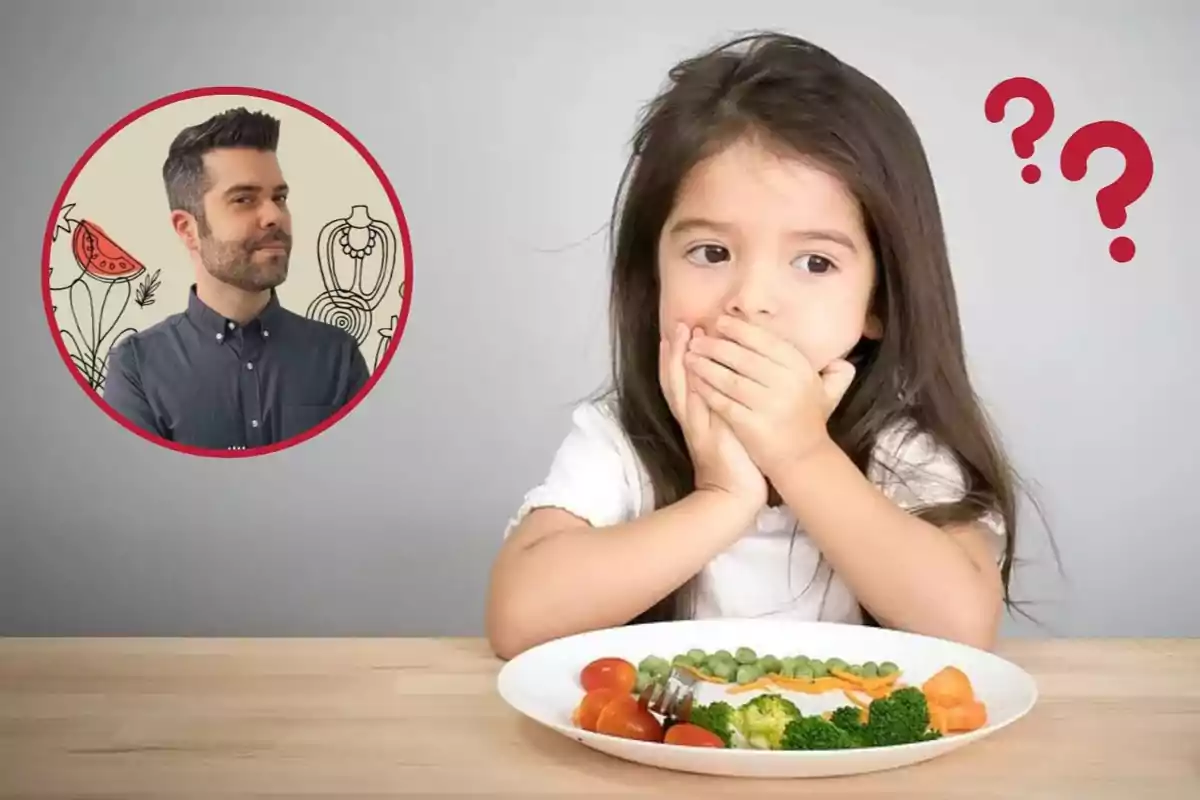More and more parents are wondering why their children don't eat well. Fruits and vegetables remain untouched on plates while cravings for ultra-processed foods multiply. The problem, however, doesn't always have to do with the child; sometimes, the key lies in how they've been taught to eat.
Luis Alberto Zamora, a nutritionist specialized in childhood and a member of the Official College of Dietitians-Nutritionists of Madrid, has shared a very specific explanation about this issue. The expert has warned that children aren't born knowing how to eat well, but must learn it over time and with support. According to what he explains in El País, the big mistake is thinking that healthy eating should come automatically from childhood.

It's not rebellion: this is the real reason why they reject food
Lack of habit, pressure during meals, or even contradictory messages from adults are factors that directly influence eating habits. That's why Zamora has pointed out that the process of learning to eat is as important as learning language or personal hygiene. If it's not accompanied by consistency, patience, and structure, the results can be as limited as they are frustrating.
The nutritionist has insisted that rejecting certain foods, such as vegetables, isn't an immediate warning sign. In fact, he has stated that it's normal for children not to accept bitter flavors or new textures at first. The key, in his opinion, is repeated exposure, without forcing or punishing, and gradually integrating those foods into appealing dishes.

How to introduce new foods without setting off alarms
A practical example he suggests is the gradual use of vegetables in recipes that are already accepted, such as a spinach omelet. This way, initial resistance is reduced and familiarity with more complex flavors is facilitated. In addition, he recommends that parents keep a relaxed attitude at the table, so as not to transmit anxiety or rejection to the child.
A balanced diet should include several daily servings of fruit and vegetables. The recommendation is to have at least two pieces of each, accompanied by other groups such as whole grains, seeds, or nuts. This combination provides the necessary nutrients and encourages healthy habits from a young age.

Another point he has addressed is the impact of adults' attitudes on children's relationship with food. If parents show distress or become desperate because the child doesn't want to try something, it's likely that the child will also reject it. Eating should be a moment of calm, not of conflict.
What to do when they break the routine: myths and common mistakes
Zamora has also debunked some of the most widespread myths about child nutrition. He has explained that it's not necessary to do any kind of "detox" after parties, much less implement restrictive diets. What matters, he said, is to return to routine naturally and coherently, without dramatizing or blaming the child.
Regarding social settings, such as birthdays, the nutritionist has recommended not resorting to drastic prohibitions. In his view, it's better to educate in moderation and teach the child to self-regulate, rather than impose rigid rules that later can't be sustained. Exceptions are also part of healthy education.

He hasn't considered it reasonable to talk about child fasting, a practice that, as he emphasizes, isn't supported by scientific evidence and could have harmful effects. In childhood, every meal counts, and nutrients must be dense in quality, since the amounts a small child can tolerate are smaller (volumes). For this reason, it's essential that every bite is as complete as possible.
Learning to eat: a process that starts at home
The nutritionist's message has been clear: if your child doesn't eat as they should, it may not be due to stubbornness or whims, but because they haven't yet learned how to do it. Meanwhile, in that process, the family's role is crucial. Food education starts from the first months, but it's never too late to improve it.
His proposal is firm but sensible: less pressure, more repetition; less demand, more example. The nutritionist has advocated for conscious parenting in which eating well isn't a punishment, but a learned pleasure. He has also reminded that it's not about achieving perfect meals, but about building a healthy and lasting relationship with food.

